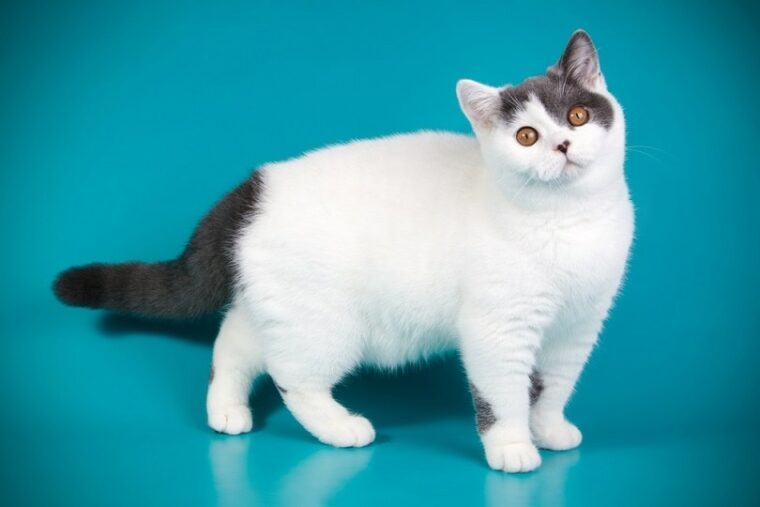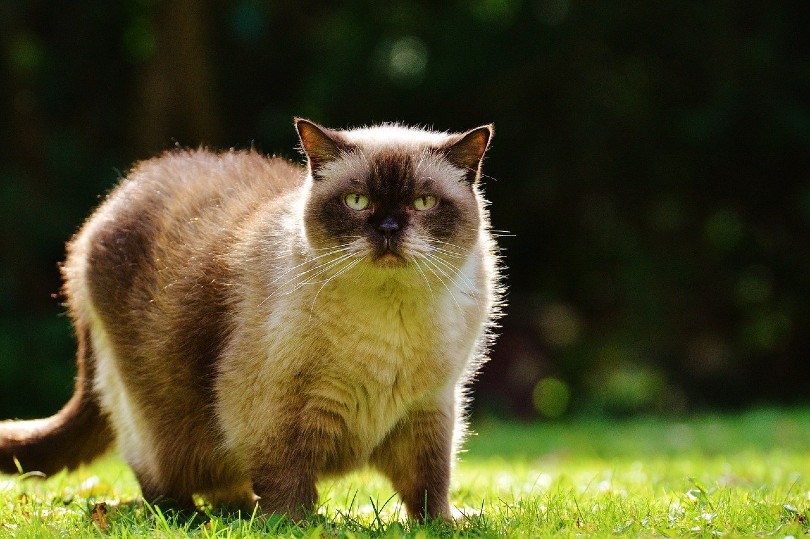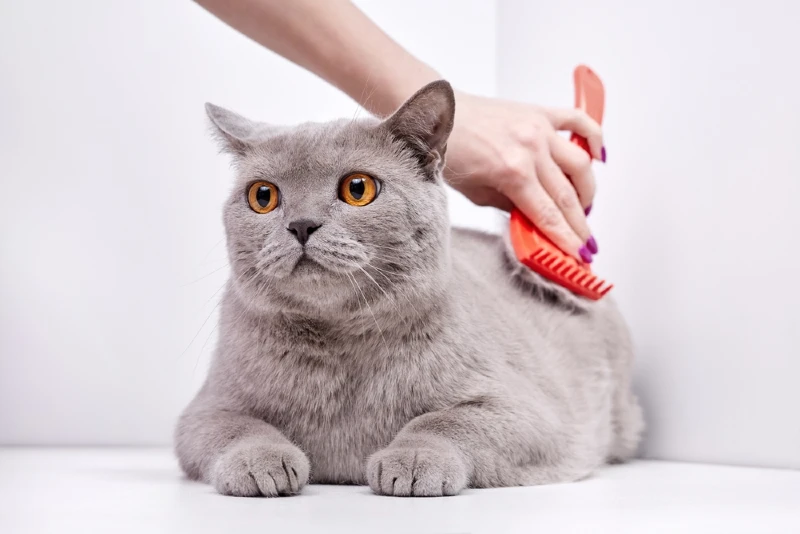
Distinguished by their affable natures, large, stocky frames, and dense, plush coats, it’s no wonder British Shorthairs draw the attention of cat lovers the world over. But what are they like in terms of maintenance? Fortunately for current or prospective British Shorthair parents, these cats do not shed a lot and don’t require as much grooming as some other breeds.
All that being said, grooming is still an important part of the British Shorthair’s general care routine. Read on to find out more about British Shorthair cats’ coats and what they’re like to care for.
British Shorthair Coat: The Basics
The British Shorthair has a short, dense coat and a vast number of coat colors and patterns are possible, including blue, black, red, lilac, and cream to name but a few. Patterns include but are not limited to tabby, calico, and tortoiseshell. According to the Cat Fanciers’ Association’s breed standard, British Shorthairs should not have double coats nor should they be “woolly” in texture.

Do British Shorthairs Shed?
Though healthy British Shorthair cats do not shed heavily, like other cat breeds, they do shed seasonally. Shedding seasons are spring and fall, so don’t be alarmed if you spot your British Shorthair shedding more than usual during these times as long as they seem otherwise healthy.
In preparation for shedding seasons, it’s a good idea to acquire a lint roller and a shedding comb or brush to give your kitty a hand removing loose hairs on a daily basis. Work the comb or brush gently through the coat from head to tail, not forgetting the belly and chest. Be sure to brush your British Shorthair in the direction of the hair’s growth.
Outside of shedding seasons, you can brush your British Shorthair one or two times per week to distribute the skin’s natural oils throughout the coat and get rid of loose hairs. This helps improve and maintain your cat’s skin and coat condition.
Most pets do an excellent job of cleaning themselves, and cats are no exception. They will spend countless hours grooming, but with the Hepper Cat Brush, they no longer need to spend their days licking their loose fur.
- ONE PUSH RELEASE - This kitten brush / cat brush pops out fur with just a simple press, leaving you...
- DURABLE - Cat shedding can be a tough ordeal. Made of resilient ABS plastic and metal bristles with...
- COMFORTABLE - A cat fur brush with 60 degree angled, fine bristles and rubber stoppers will bring...
The brush is designed to be gentle yet effective, removing loose hair and stubborn knots without any painful pulling. What better way to bond with your favorite feline?
At Pet Keen, we’ve admired Hepper for many years and decided to take a controlling ownership interest so that we could benefit from the outstanding designs of this cool cat company!
Should I Bathe My British Shorthair?
Contrary to what some think, it’s not necessary to bathe your cat as a rule because they’re so adept at grooming themselves. Keeping up with a good brushing and grooming routine is sufficient for supporting a healthy skin and coat condition in most cases. This is great news for cat parents everywhere because, as we all know, bathing a cat can be stressful—to put it mildly—for both us and them.
The only occasions you might need to bathe your cat is if they get especially dirty for whatever reason or if your vet has recommended it. For some health conditions like skin problems, vets may prescribe pet-safe medicated shampoos to help treat your cat.

Why Is My British Shorthair Losing Hair?
Though seasonal shedding in cats is perfectly normal, in some cases, hair loss can be caused by a medical condition. Watch out for symptoms like patchiness, dry, itchy skin, redness of the skin, bumpiness, and overgrooming.
In certain cases, non-skin-related medical conditions can cause hair loss in cats, so also keep an eye out for symptoms of illness including appetite changes, diarrhea vomiting, lethargy, urinating more, drinking more, and a swollen belly.
If you suspect that a medical condition might be causing your British Shorthair to lose more hair than usual, consult your vet to find out what may be behind it.
Conditions that can cause unusual or excessive hair loss in cats include (but are not limited to):
Conclusion
To recap, British Shorthairs don’t shed a lot throughout the year but experience seasonal shedding during spring and fall. It’s normal for healthy British Shorthairs to lose more hair at these times and they’ll need daily brushing to keep things under control.
If you’re concerned because your British Shorthair is losing hair or has bald spots or other unusual symptoms, please get them checked by a vet so that they can be diagnosed and treated for potential underlying medical conditions as soon as possible.
Featured Image Credit: Oleksandr Volchanskyi, Shutterstock









